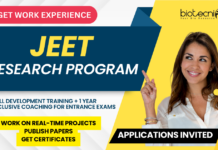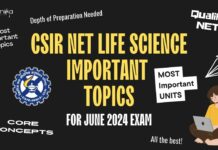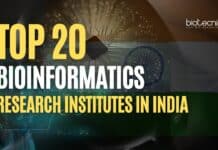Strand Hiring For Scientist Role – Cell Biology, Oncology, Genetics, Mol Bio & Immunology Candidates Apply
Strand Hiring For Scientist Role – Cell Biology, Oncology, Genetics, Mol Bio & Immunology Candidates Apply. Candidates With 1+ years of experience are eligible to apply for this role at Strand. Interested candidates can check out all of the details below
Possible Interview Questions for the Technical Round are posted below
WE ARE HIRING!
Scientist
Location: Bangalore
Experience Required: 1+ Years
About the Position
We are looking for scientists with a background in genetics, molecular biology, oncology or related areas with some exposure to omics data (genomics, proteomics, transcriptomics etc). The role involves:
- Curating omics data and associated metadata to create well harmonized datasets for analysis
- Providing biological interpretation for results from the analysis of omics data
- Reading scientific papers, critically assessing results and summarizing them
Job Requirements and Required Skills
- Master’s/PhD degree in Cell Biology, Genetics, Molecular Biology, Oncology, Immunology or a related field.
- 1+ years of experience with omics data preferred
- Careful attention to detail
- Strong writing and analytical skills
- Good oral communication skills and ability to present results of analysis.
We offer
- An innovative and open culture in a truly multicultural environment
- An opportunity to make a fundamental impact on human health
- Vibrant multidisciplinary scientific interaction and learning opportunity
- A collaborative and solution-oriented environment where you can make a difference
- A competitive salary and generous benefits
How to Apply: Requesting to all please share your CV to Mr Skanda (HR): [email protected].
Possible Interview Questions for the Technical Round:
- Can you describe your experience working with omics data? What specific types of omics data have you dealt with, such as genomics, proteomics, or transcriptomics?
- Answer: In my previous role, I have worked extensively with genomics data, specifically analyzing gene expression patterns using transcriptomics data. I am also familiar with proteomics data analysis techniques and have used them in a few projects.
- How do you ensure the quality and accuracy of curated omics data and associated metadata? Could you provide an example of a challenge you faced in this process and how you overcame it?
- Answer: To ensure quality and accuracy, I follow standardized protocols for data curation and perform thorough data validation checks. For example, in one project, I encountered discrepancies in metadata labeling. To address this, I cross-referenced the metadata with the original data sources and consulted with domain experts to resolve any discrepancies and ensure data integrity.
- Can you share an instance where you provided biological interpretation for results obtained from the analysis of omics data? How did you approach the interpretation process and what insights did you derive?
- Answer: In a recent project, after analyzing transcriptomics data, I identified differentially expressed genes associated with a specific disease phenotype. To provide biological interpretation, I performed gene ontology enrichment analysis and pathway analysis to uncover the underlying biological processes and molecular pathways implicated in the disease. This analysis revealed potential therapeutic targets and novel biomarkers that could aid in further research and clinical applications.
- How do you stay updated with the latest advancements in genetics, molecular biology, and oncology? Can you give an example of a scientific paper you have recently read and its significance in your field?
- Answer: To stay updated, I regularly read scientific journals and attend conferences in my field. Recently, I read a paper on the discovery of a novel genetic mutation associated with drug resistance in cancer. This finding has significant implications for personalized medicine and developing targeted therapies to overcome drug resistance mechanisms, opening up new avenues for improving patient outcomes.
- Communication and presentation skills are essential for this role. Can you describe an instance where you effectively communicated and presented the results of your analysis to a non-technical audience? How did you ensure clarity and convey the key insights?
- Answer: In a previous project, I had to present complex genomics analysis results to a group of stakeholders with diverse backgrounds. To ensure clarity, I carefully prepared visual aids such as graphs, charts, and diagrams to illustrate the findings. I also focused on simplifying technical jargon and used plain language to explain the significance of the results and their potential impact on the project objectives. By tailoring the presentation to the audience’s level of understanding, I successfully conveyed the key insights and facilitated meaningful discussions.
Remember, these are just example questions based on the job description provided. It’s important to adapt the questions to the specific requirements and context of the interview.
Editor’s Note: Strand Hiring For Scientist Role – Cell Biology, Oncology, Genetics, Mol Bio & Immunology Candidates Apply. Please ensure you are subscribed to the Biotecnika Times Newsletter and our YouTube channel to be notified of the latest industry news. Follow us on social media like Twitter, Telegram, Facebook







































